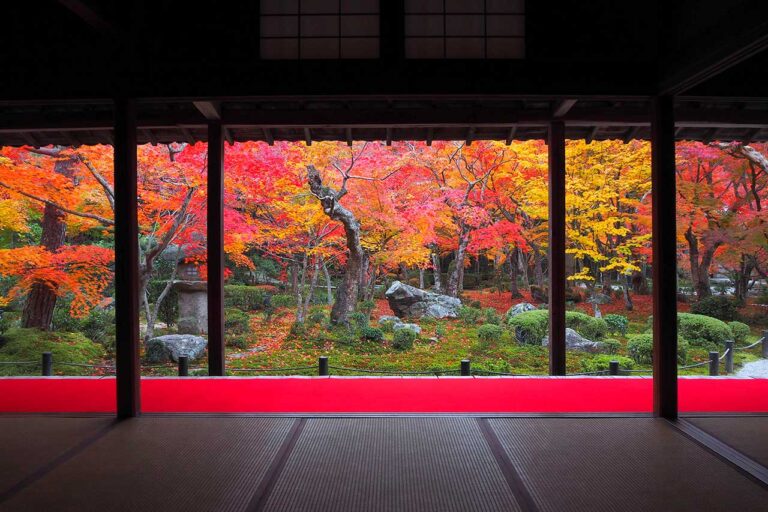
Admire the picturesque garden at Enkoji in Ichijoji
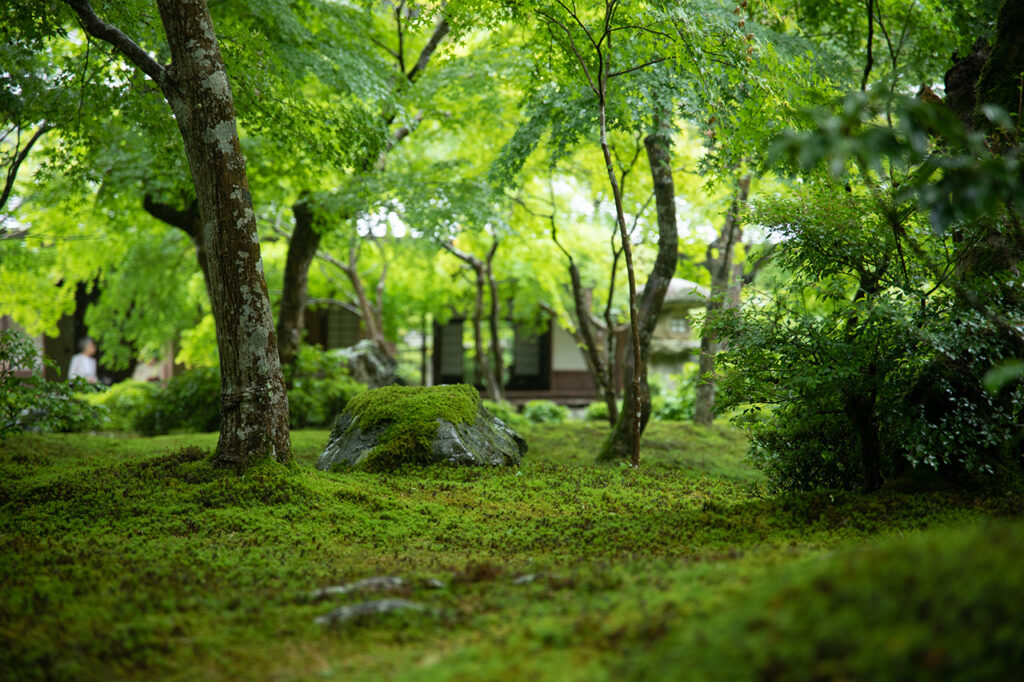

Originally a school built by Tokugawa Ieyasu in Fushimi in 1601 for teaching and learning, it was moved to its present location in 1667. After the Meiji era (1868-1912), it became Japan's only dojo specializing in nuns, and zazen sessions are still held every Sunday early morning in the zendo.
The Ten Oxen Garden, where moss, green maples, and bamboo forests cover the field of view, is the subject of the "Ten Oxen" painting, which depicts herdsmen chasing oxen, overlapping with the path of ascetic practice toward enlightenment. Some people believe that nuns practicing asceticism may have sat on a large stone resembling a cow after people had gone to bed. The garden, which respects nature as it is and has been maintained as necessary, provides a place where one can simply sit in nature and be at peace with oneself.
The garden, Jugyu-no-niwa, seen from the main hall, is so beautiful that many people use the pillars as picture frames to appreciate it. The autumn leaves that turn bright red are of course magnificent, but the green of the blue maple trees that overflow with vitality under the sunlight is also exceptionally beautiful.
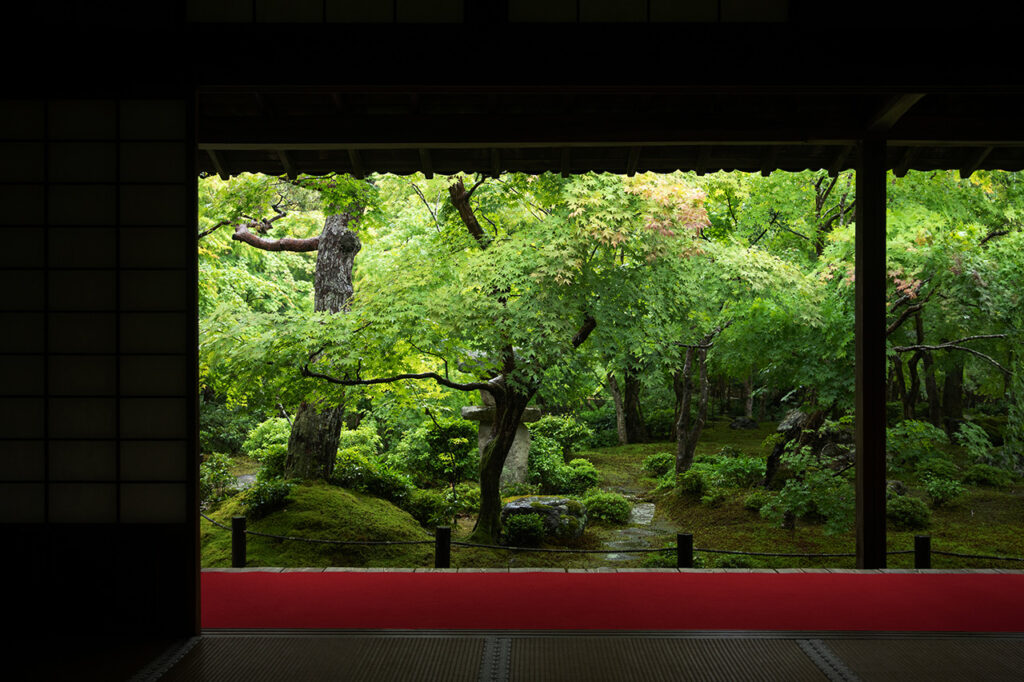

The garden, Jugyu-no-niwa, is a pond garden with a circular path around it, said to have been created in the early modern period. After praying in the main hall, go down to the garden and enjoy a stroll. As you walk deeper into the garden, admiring the moss, you will see a bamboo grove favored by the Edo period painter Maruyama Okyo.
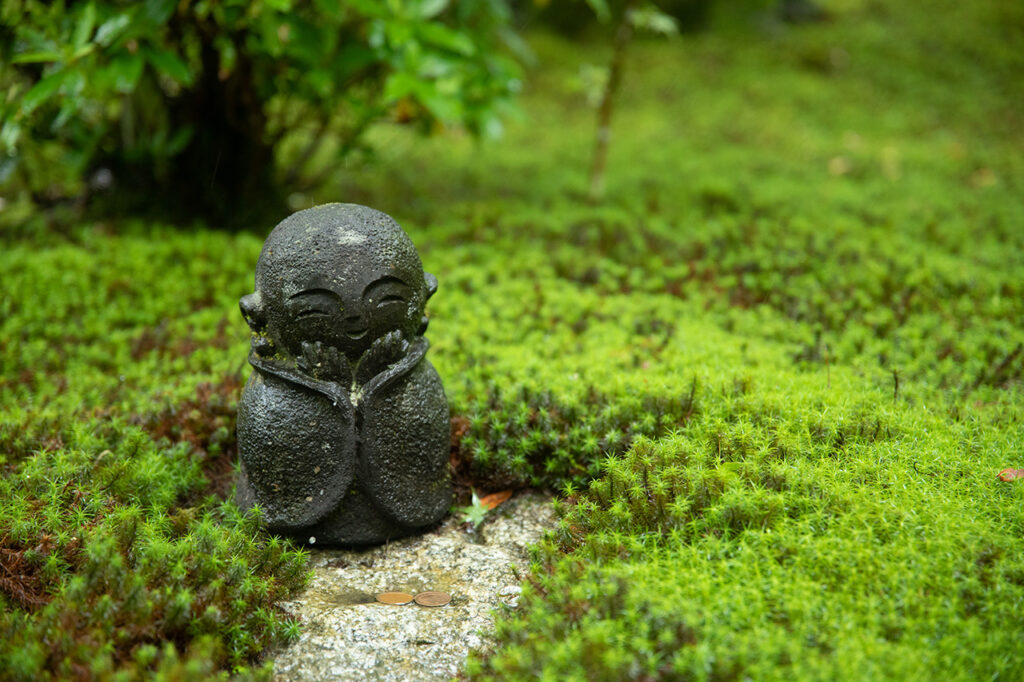

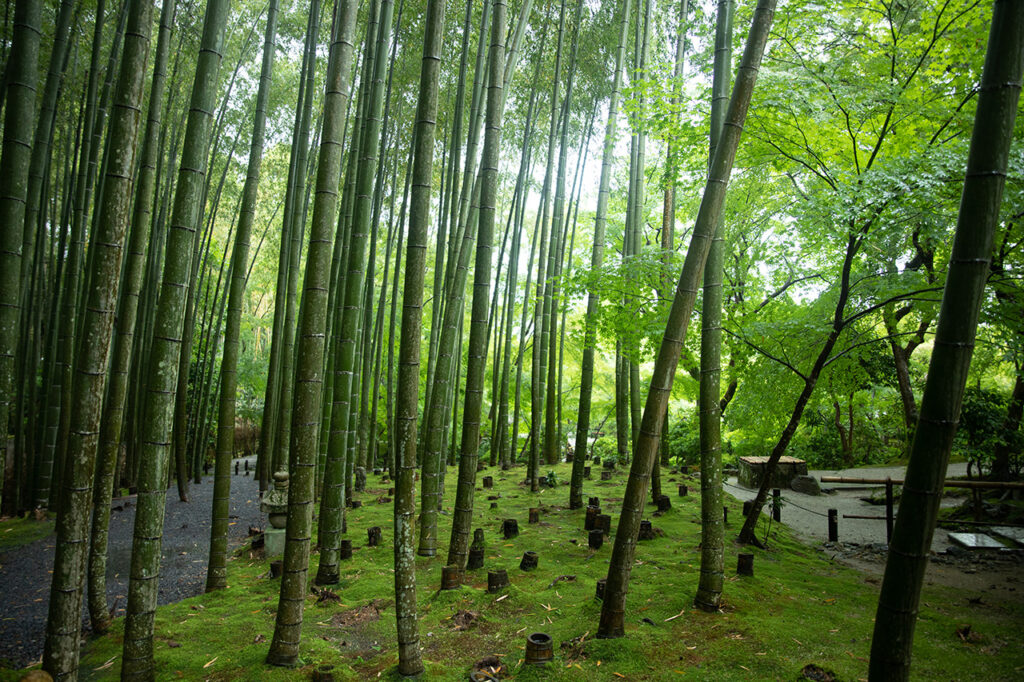

The Heisei period karesansui (dry landscape) and torinryu garden, in which a dragon seems to be dancing in the sky. The diagonally protruding stones represent the dragon's horns, and the roof tiles represent its body. The garden is not marked by any clasping stones because the garden is intended to be completed in the mind of the viewer.
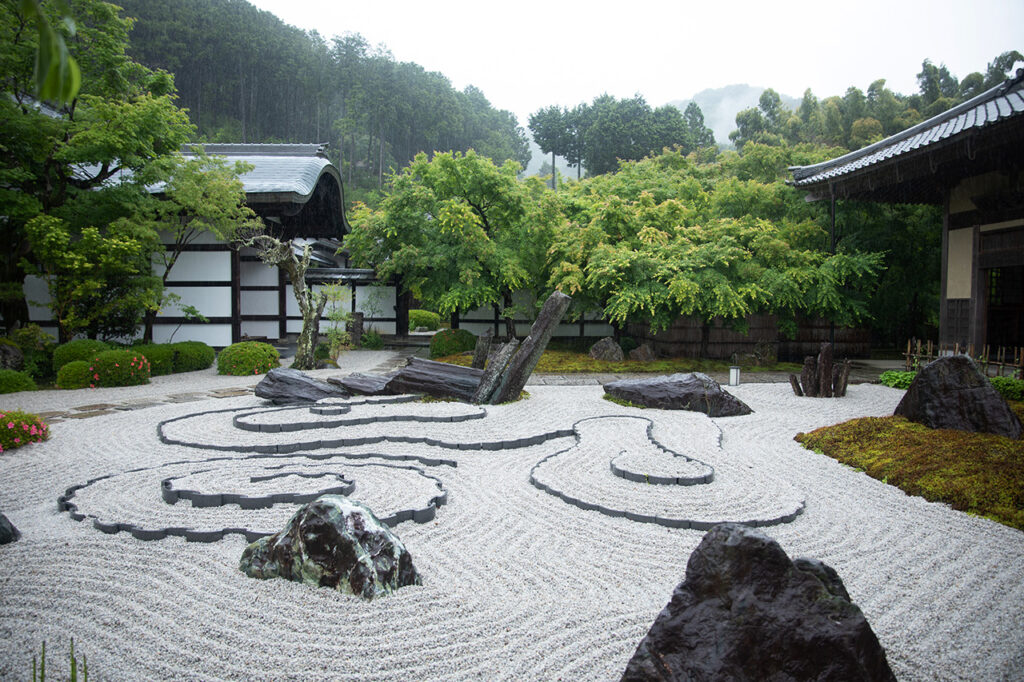

At the entrance to the main hall, you will see a suikinkutsu, a water fountain where blessed water delivers beautiful tones. Every time a drop of water falls into the embedded jar, a cool echoing sound can be heard leaking outside. It is said that ancient people enjoyed moon viewing by reflecting the moon on the surface of the water, which is as wide as a cup.
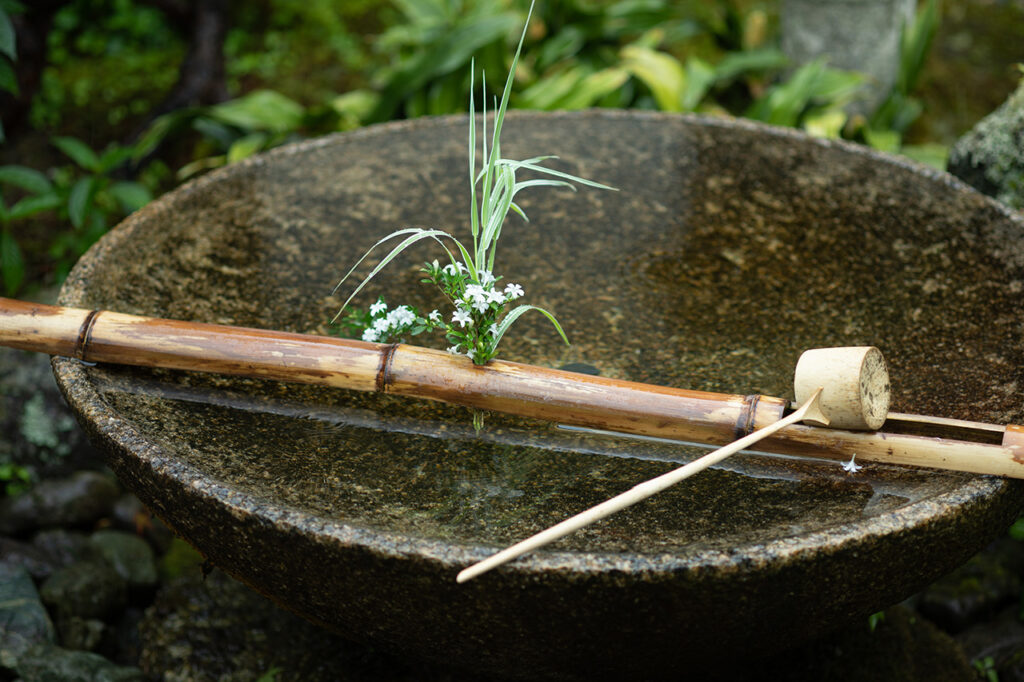

The Sunday early morning zazen session is held every Sunday morning from 6:00 to 8:00 a.m. at the Zazendo, and is open to anyone who makes a reservation at least one day in advance. After experiencing zazen in peace and quiet, there is a cleaning called sakumu, a Dharma talk, and finally a breakfast of rice porridge is served.
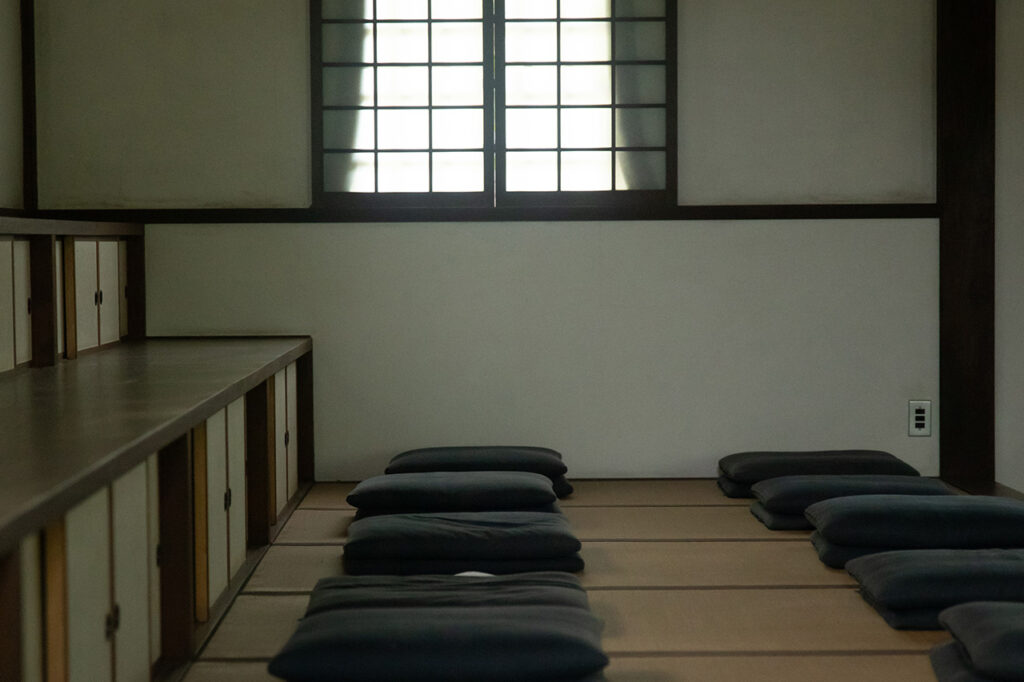

Over 600 interviews per year! An order site carefully selected by the editors who knows Kyoto and Shiga.
nowOfficial LINE friend registration500 yen OFF coupon is being issued!
Distributed every Friday morning at 8:00 am! From new restaurant information to event information that we want to share with you, We deliver articles about Kyoto that are useful to know. About 20,000 people have registered.Click here to add a friend!
 News
News Feature article
Feature article Featured event
Featured event